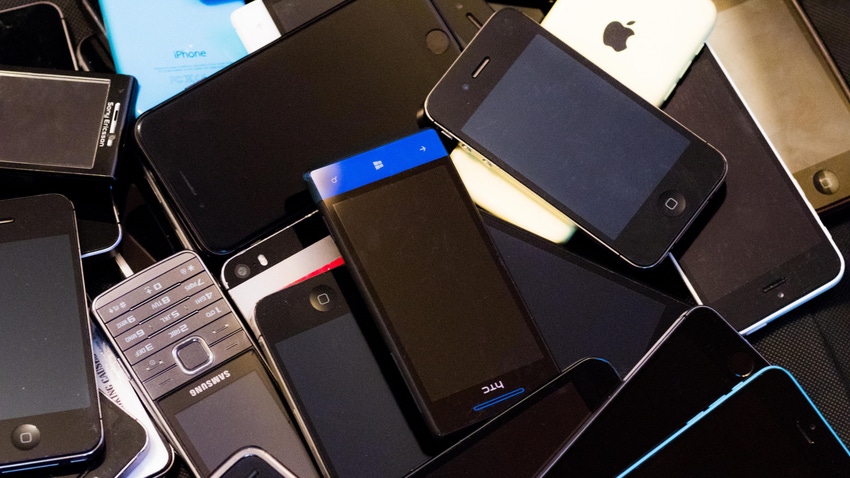More fiber providers eye mobile convergence
Fiber operator Metronet appears to be moving closer to a mobile deal, according to New Street analysts. Meanwhile, Frontier and Lumen are taking a wait-and-see approach to such convergence.

According to a handful of new reports, smaller fiber operators ranging from Lumen Technologies to Frontier Communications to Metronet are considering the addition of mobile services to their fiber offerings. Their goal: to maintain their competitive position in a converging telecommunications market.
However, so far there appears to be little impetus to move quickly on the topic.
Fiber providers "currently don't see a pressing need for a mobile offering but remain open to the possibility," wrote the financial analysts at TD Cowen in a report detailing the firm's recent fiber event. "It's a matter of 'when,' and not 'if.'"
Others agree. The financial analysts at New Street Research recently wrote that the topic of convergence is getting "a whole lot more interesting." But in their summary of their own recent fiber event, they too noted that a merging of fiber and mobile isn't happening quickly.
Already some fiber providers – such as ALLO and Omnipoint – have launched mobile services through MVNO partnerships with AT&T. And of course, some big wireless network operators like Verizon and AT&T continue to expand their own fiber networks into new locations.
To be clear, a similar trend is playing out in the cable industry. Cable providers ranging from Comcast to Charter Communications, Cox, Altice and TVS Cable are adding mobile services to their cable offerings. They're doing so via MVNO deals with the likes of AT&T (TVS Cable), T-Mobile (Altice) and Verizon (Comcast, Charter and Cox).
But such trends appear ready to accelerate, based on the New Street and TD Cowen reports.
Prepping mobile services
"Metronet seems to be considering a wireless offering more seriously than when we spoke to them previously. They are concerned that, without a wireless opportunity, they limit the portion of the market they can address. The challenge for them is securing access to a wireless offering at terms that make sense, given their scale," wrote the New Street analysts of their recent Fiber-to-the-Future conference. "If offering wireless is rising in importance for Metronet, we suspect it is for other broadband operators also."
Metronet is headquartered in Evansville, Indiana, and counts fiber operations in roughly 200 communities across 16 states.
Other smaller fiber operators are having similar thoughts. "Frontier would consider launching a wireless MVNO if it sees two data points: (1) it is no longer achieving the targeted [fiber] penetration, and (2) mobile becomes a very important factor in lowering churn. However, the company is already experiencing good penetration and record low churn," wrote the TD Cowen analysts of their recent FTTH Symposium.
The TD Cowen analysts wrote that Lumen also isn't yet seeing the need for a mobile service that would lower churn among its fiber customers. Indeed, Lumen officials said as much last year when discussing the topic.
Lumen, for its part, recently announced the completion of a debt restructuring that "clears the runway for our transformation," according to the company's CEO.
Moving ahead
Already some fiber providers have jumped into the mobile business. According to the TD Cowen analysts, ALLO recently launched its mobile service through the NCTC's deal with AT&T. "For ALLO, launching the mobile offering took some time and the company doesn't expect to see meaningful wireless customer numbers until 4-5 years from now," the analysts wrote.
NCTC's top executive recently said the organization has around 100 members – including fiber and cable operators – kicking the tires on its MVNO offering, which was introduced last year.
And on the wireless side of things, T-Mobile continues to test fiber offerings. The mobile network operator currently offers fiber services in 13 smaller US cities via partnerships with open access fiber companies like Tillman FiberCo, SiFi Networks and Intrepid Networks. Unlike AT&T and Verizon, T-Mobile does not operate its own fiber network.
However, T-Mobile is in talks to invest up to $1 billion into a joint venture with regional US fiber network operator Lumos Networks, according to a report in the German publication Handelsblatt.
"The Lumos deal, if the stories prove accurate, may just be another experiment, or it may be the beginning of something bigger," the New Street analysts wrote.
About the Author(s)
You May Also Like




_International_Software_Products.jpeg?width=300&auto=webp&quality=80&disable=upscale)







